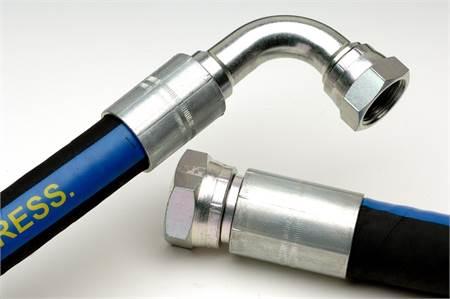Over the winter period, the air conditioning systems in your vehicle aren’t being used and long periods of disuse will increase the chances of deterioration occurring in the air conditioning hoses and fittings. In order to prepare for the warmer summer months, when you will be using the air conditioning more regularly, it is always best to check your vehicle’s air conditioning.
The air conditioning systems used in some vehicles can be completely different to those used in commercial and domestic buildings. Vehicles including cars, agricultural equipment and machines, trains and tramways use air conditioning flexible rubber hoses, but they can also be used for industrials refrigeration systems where a higher output system may need to be used.
Inside most vehicles, on today’s roads, the air conditioners use a low-boiling point liquid, commonly known as a Freon, as a refrigerant. The most commonly used refrigerant is R134a, it is transferred through the air conditioning system via hoses and fittings under high pressures as a liquid and gas to cool down quickly and help provide the cold air to keep you cool.
The air conditioning hoses are therefore subjected to high pressures and big differences in temperature during the circulation in the system and the hoses have high requirements with extra concern needed for signs of leaks. The effectiveness of the refrigerant means that it is very penetrating and can be prone to leaks when left unattended and unused for long periods of time.
When renovating a caravan or starting a truck or tractor restoration it is more than likely that parts or all of the air conditioning hoses and fittings will need to be repaired or replaced. It is important to use a hose and fitting specialist when taking on a big task like this as a small fault in the repairs can cause expensive damage to the condenser or valves in an air conditioning system.
Air conditioning hoses that are designed for automotive use are made out of different types of high-quality rubber and have a barrier construction. They have more layers of protection around the flowing refrigerant so that there is a minimised risk of permeation of the fluid.
As the leading hose and fittings specialist, our network of experts around the country are fully trained and are always able to come up with a solution for any problem. Call us on 0800 38 24 38 or email us at [email protected] for any expert advice.






Select a country